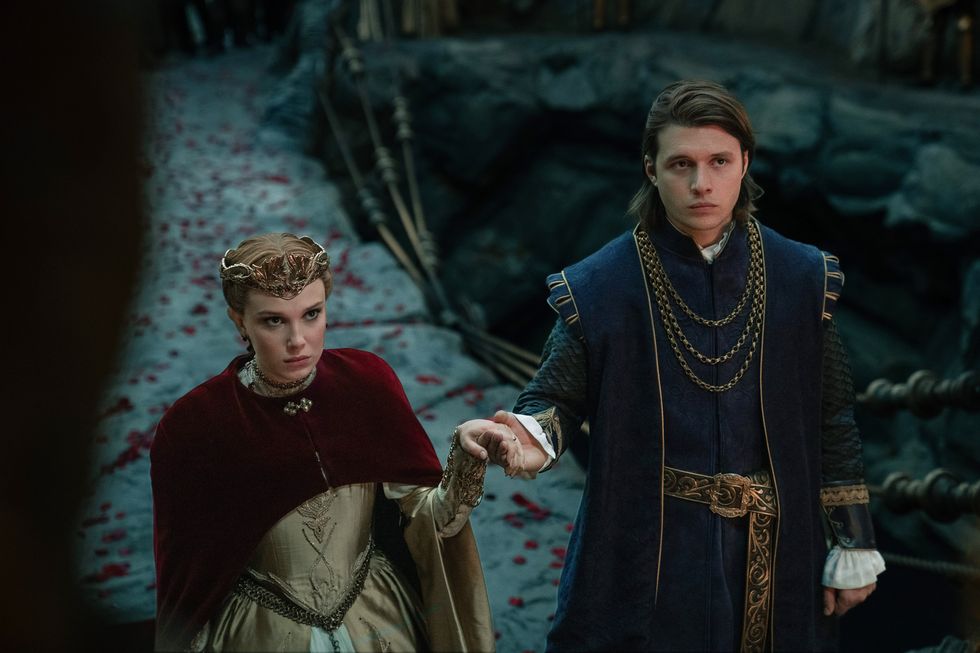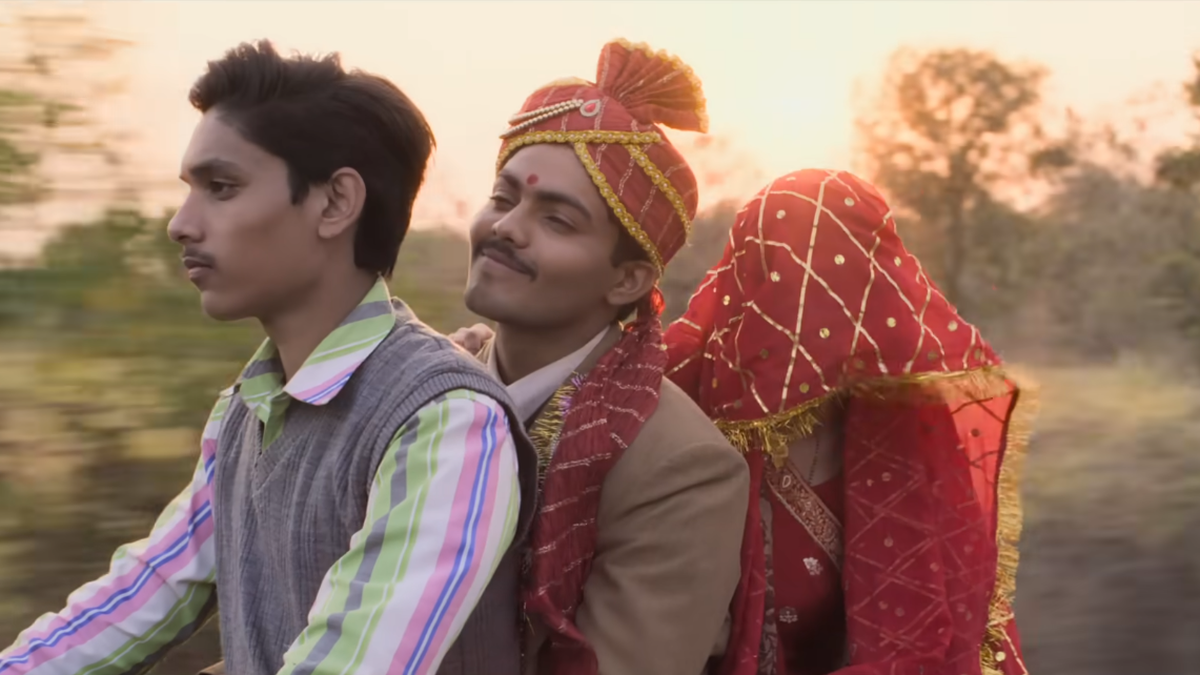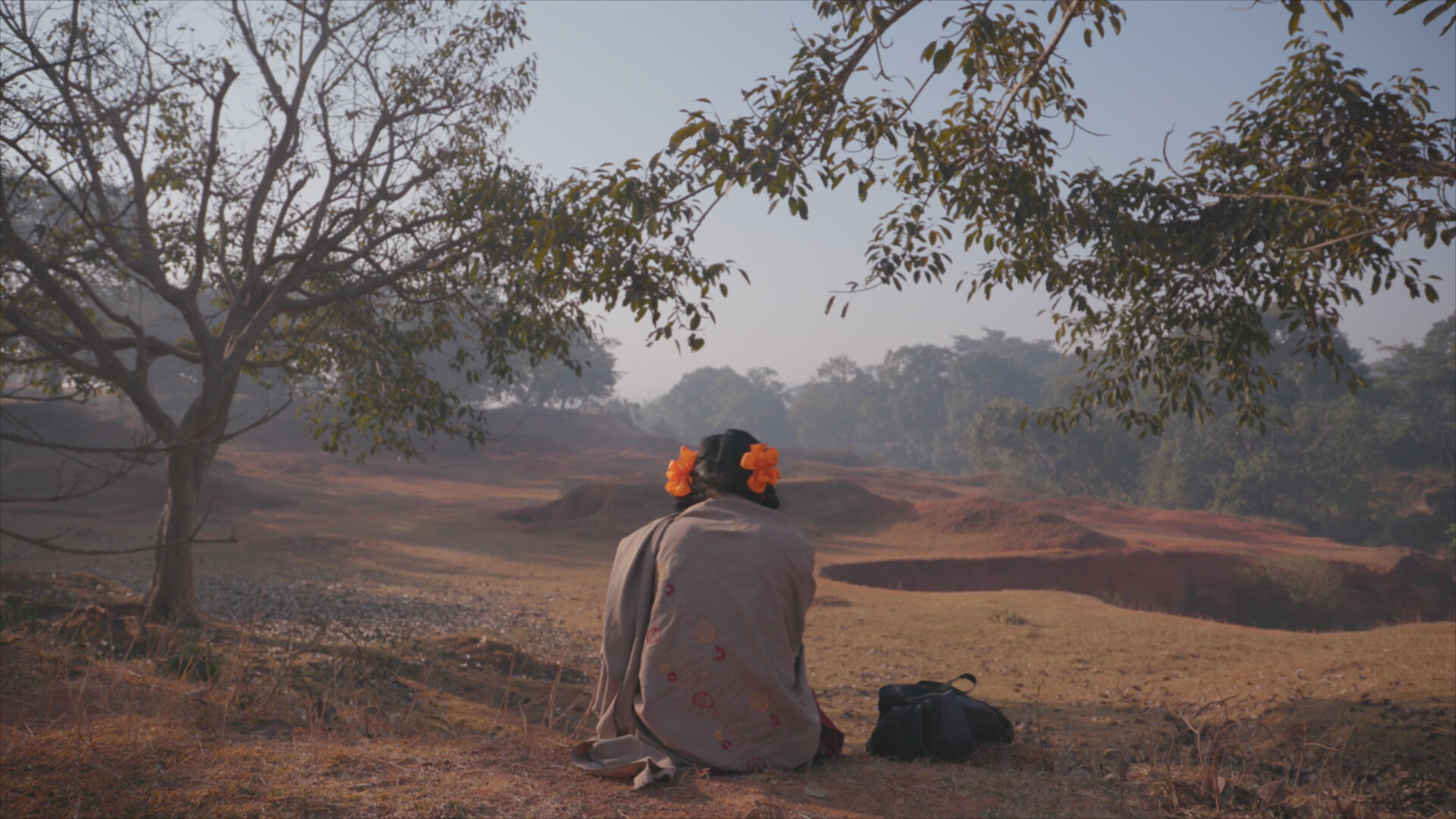I’ve said this many times, but I state it again: I’m a super fan of the fantasy genre. Whether it’s because The Lord of the Rings saga remains my favorite after all these years or because it’s a genre that allows exploring the true immersive, escapist potential of cinema, I’ve always felt a special connection with this type of storytelling set in a completely imaginary world, full of mythical beings, breathtaking kingdoms and castles, and uniquely unforgettable creatures. Therefore, the mere fact that Damsel is an original fantasy story automatically set my expectations for this Netflix movie higher than usual.
Directed by Juan Carlos Fresnadillo (28 Weeks Later) and written by Dan Mazeau (Fast X), Damsel follows the story of Elodie (Millie Bobby Brown), a young woman from a poor kingdom who sees an opportunity to change her life, as well as that of her people and family, when a marriage proposal from a wealthy prince lands at her feet. However, the matrimonial ceremony hides the real intent of the royal family, which must sacrifice Elodie to fulfill an ancient debt. Trapped in a cave with a relentless dragon, the now-princess relies on her abilities and intelligence to survive.
A brief look into this premise is enough to anticipate a predictable, formulaic narrative with little hope of actual innovation. After all, Damsel makes use of having a female protagonist who doesn’t need a “handsome prince” to rescue her, contradicting the “damsel in distress” archetype, something commendable whose impact would have been much greater… if the movie had been released more than a decade ago. At the start of 2024, a premise like this not only fails to shock anyone but also arrives too late to be influential in the industry.

As such, Damsel suffers immensely from its conventionality and lack of any significant exploration of its characters, any surprises in its storylines, or any notable thematic study. It follows all the well-known cliches and then some, in addition to rushing through some of the more dramatic, emotive moments that could have elevated a few powerful scenes on paper. It’s a story of female empowerment that holds all the right ingredients to be more than a generic, easily forgettable film.
The highlights are mostly technical. The visual effects are impressively consistent throughout the runtime, with the immersive atmosphere being Damsel‘s greatest achievement. Despite the narrative issues mentioned above, I found myself strangely captivated by a world that, even though it heavily borrows several visual, sound, and story details from other sagas within the genre, manages to distinguish itself. Indeed, contrary to what many viewers might think, the film contains many sequences in real locations and sets built from scratch that deserve much praise. Evidently, the fact that it was shot in Portugal brings a certain audiovisual bonus, almost as if the castles, monasteries, or Portuguese landscapes were eye-popping cameos.
The costume design is the only element of Damsel that, curiously, undergoes the biggest evolution as the film progresses and has some thematic weight. Elodie begins her “adventure” in a wedding dress with so many layers that, each time she encounters an obstacle, she relies on her skillfulness, creativity, and intelligence to use the various pieces of her clothing to survive and overcome the dangers that come her way. The more heavy, tight pieces devoid of any emotional or personal connection she removes, the closer Elodie gets to her essence as a loving sister, daughter, and brave, tenacious woman.

And this is where Millie Bobby Brown (Stranger Things) comes in to completely elevate the script. I maintain my opinion that she’s one of the most talented actresses of her generation whose full potential is yet to be explored, but Damsel offers her a chance to prove she has what it takes to lead a larger-scale movie. Brown captures pain and despair like no one else, but also displays kindness, love, and charm with ease. She’s, without a doubt, the main reason I remained interested until the end, even expecting a quite obvious conclusion. Also noteworthy is the fantastic voice work of Shohreh Aghdashloo (Arcane), who gives the gold-toned dragon a frightening, powerful presence.
Finally, my last mention goes to the cinematography of Larry Fong (The Tomorrow War) and the score by David Fleming (Blue Planet II). The fantasy genre is inherently linked to an impactful audiovisual experience due to the naturally grandiose elements in scale, so cinematic photography and sound production are vital to generating that epic atmosphere that viewers desire so much. Fortunately, Damsel is filled with stunning wide shots and majestic close-ups that will make excellent wallpapers. It’s a shame that the basic story doesn’t keep up with all the technical components…
Damsel attempts to deliver a tale of empowerment and adventure within the rich fantasy genre but finds itself entangled in the ropes of predictability and missed opportunities for deeper narrative innovation. Despite its shortcomings, the film shines through its technical prowess, from visually stunning effects to immersive world-building, and is anchored by Millie Bobby Brown’s compelling lead performance. While it may not redefine its genre or leave an indelible mark on the history of cinema, it’s a pleasant home viewing with moments of genuine charm and resilience.





